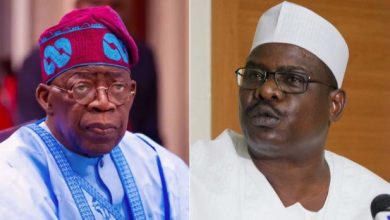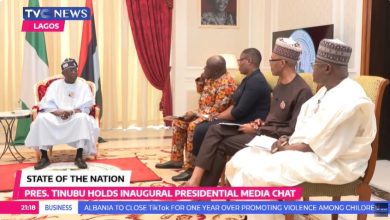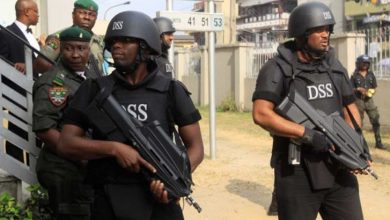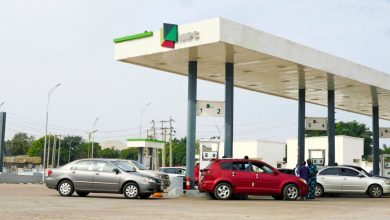COVID-19: FG Spends N9.9bn For Hand Washing, N94bn For Youths
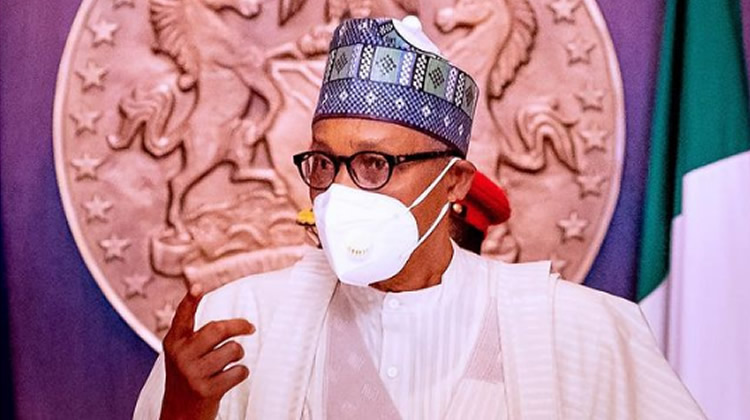
The Federal Government received N9.9 billion from the COVID-19 intervention fund through the Ministry of Water Resources to undertake the ‘wash programme,’ which includes water sanitation and health projects.
This comes on the heels of N94 billion in funding for youth empowerment and employment creation.
The Federal Ministry of Finance, Budget, and National Planning disclosed these statistics in response to a Freedom of Information request by human rights lawyer Mr Femi Falana (SAN).
Dr Zakari Lawal, the ministry’s Director of National Monitoring and Evaluation, signed the document titled “Re: Request for Information on Utilization of the Sum of N1.5tn Spent by the Federal Government of Nigeria on Managing the Effects of COVID-19.”
According to the paper, the Federal Executive Council authorized a N2.3 trillion stimulus plan suggested in the Nigeria Economic Sustainability Plan in June 2020, with the goal of supporting the country’s economy and mitigating the effects of the COVID-19 pandemic.
The Central Bank of Nigeria planned to disburse N500 billion to ministries, departments, and agencies, with the remainder going to the private sector.
Exposed!! Popular Abuja doctor revealed how men can naturally and permanently cure poor erection, quick ejaculation, small and shameful manhood without side effects. Even if you are hypertensive or diabetic . Stop the use of hard drugs for sex!! It kills!
According to the document, around N1.9tn of the N2.3tn had been disbursed.
While N94 billion was allocated to youth participation and employment creation, N128.5 billion was allocated to health equipment and related issues.
The Ministry of Youth and Sport Development received N690 million to train 150 young people as agro-technicians and solar technicians.
The ministry also received N2 billion to train 1,600 youngsters as digital experts and N1.1 billion to provide job experience to 2,700 youths.
The ministry was given N1.5 billion to develop six ICT centers in Kano, Bauchi, Plateau, Anambra, Cross River, and Osun, as well as 24 vocational centers across the country.
The International Centre for Women’s Development, which is part of the Ministry of Women’s Affairs, received N250 million for a post-COVID-19 job creation scheme. It also received N1 billion for a job-creation scheme post-COVID-19: vocational skills training equipment in the six geopolitical zones.
The Ministry of Communications and Digital Economy received N1 billion for a post-COVID-19 employment creation scheme that includes entrepreneurship and vocational training in the six geopolitical zones, as well as subsidised training for qualified individuals across the country.
The Federal Government also provided N2 billion to the Communications Ministry for the post-COVID-19 employment creation scheme, which includes the establishment of robotic, 3-D printing, IoT, big data analytics, and block chain centers of excellence and labs.
N52 billion was given to the National Directorate of Employment to engage youths and provide business training.
N32.5 billion was given to the Ministry of Humanitarian Affairs, Disaster Management, and Social Development to fund a social intervention program.
Surveillance and epidemiology received N1 billion, laboratory received N10.2 billion, point of entry received N310.4 million, infection prevention and control received N133.6 million, case management received N1.8 billion, health-related communication received N89 million, and research and development received N75 million.
It also received N6.5 billion for NCDC, N10 billion for Lagos State, 1 billion for pharmaceutical companies for unutilized raw materials, N20 billion for hazard allowance, N2.5 billion for contingencies, N10 billion for food and drug services, and N10 billion for local vaccine manufacturing.
A total of N18.4 billion was disbursed among 52 federal teaching hospitals and federal medical centers to equip 10-bed critical care units as part of the government’s support for health care in the country.
The 52 health centers received N5.2 billion to outfit isolation treatment centers, N7.8 billion to outfit all federal tertiary health institutions with personal protective equipment, and N18 billion to outfit molecular laboratories.
The national agency for food and drug administration, the Nigerian Institute of Medical Research, the National Institute for Pharmaceutical Research and Development, and the Nigeria Centre for Disease Control each received N2 billion in reagents and equipment for COVID-19-related laboratory services.
Another N2 billion was given to the National Agency for Food and Drug Control to enhance vaccine laboratory testing.
In the meantime, the Nigerian Institute of Medical Research received N1 billion for laboratory equipment upgrades, and the National Institute for Pharmaceutical Research and Development received another N2 billion for research and development.
The Federal Fire Service received N1.5 billion for COVID-19 kits and other medical equipment, while the National Correctional Service received N951.1 million for health facility repair, provision, and upkeep in six geographical zones.
The governmental sector received approximately 490 billion dollars, while the private sector received almost 1.4 trillion dollars.
The Ministry of Finance, Budget, and National Planning received N750 million for monitoring and reviewing the Economic Sustainability Plan, as well as N36 billion for state support.
The National Commission for Refugee Migrants and Internally Displaced Persons received N2.5 billion, while the Secretary to the Government of the Federation received N250 million to support the economic sustainability committee’s efforts.
The Nigerian Police Force and the Nigerian Air Force, respectively, got N10 billion and N2.7 billion in assistance for their activities.
About N56.5 billion was given to the Ministry of Agriculture and Rural Development. N17.2 billion was set aside for the payment of 5% interest on CBN loans to farmers; N27 billion was set aside for farmer/farm registration and 50% sampling mapping; N2.5 billion was set aside for land preparation; and N34 billion was set aside for rural roads in the six geopolitical zones.
The Rural Electricity Agency received N12.4 billion for rural electrification and a solar energy strategy.
N75 billion has been allocated to the Federal Ministry of Industry, Trade, and Investment to help small enterprises.
The Nigeria Security and Civil Defence Corps received N539.7 million, while the Federal Road Maintenance Agency received N60 billion to rehabilitate roads.
Artisanal and small-scale miners received N6 billion from the Ministry of Mines and Steel Development.
The Ministry of Aviation was given N5 billion as a bailout package for the aviation industry.
Some MDAs in the business sector were in charge of coordinating funding assistance to the private sector. The federal Ministry of Agriculture and Rural Development, for example, has requested N471.7 billion for interest-free loans to farmers under the agriculture jobs and food programs.
The Family Homes Fund was awarded N200 billion to create jobs through housing programs.
The Federal Mortgage Bank of Nigeria was awarded N40 billion, while the federal housing authority was given N26 billion to build dwellings.
The Ministry of Power received N140 billion from the Renewable Energy Agency (REA) for all solar power strategies.
N90 billion was given to the Ministry of Petroleum Resources for the national gas expansion initiative.
The Ministry of Trade received N250 billion from the Bank of Industry to boost MSMEs.
N47 billion was allocated to the Ministry of Humanitarian Affairs, Disaster Management, and Social Development for NP: skills and entrepreneurship, while N72.9 billion was allocated to the Finance Ministry to support health systems.

